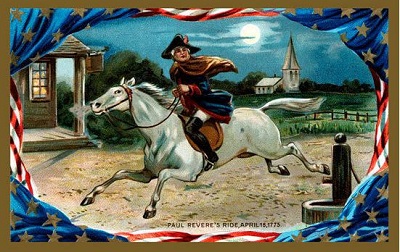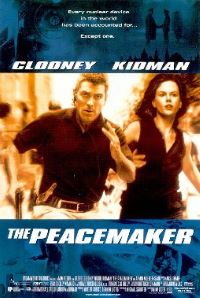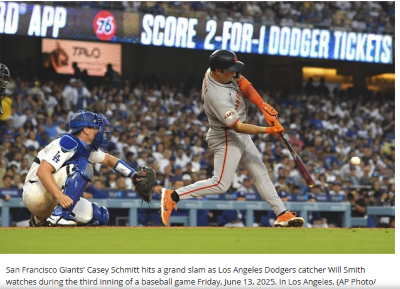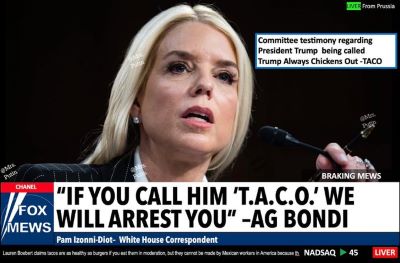
January marks the beginning of a new year for the legislators as well. Following the November elections there may be new people in office and new people in charge of the committees and subcommittees that affect the history community. Below are three items which can be considered for advocacy for the coming year.
Congressional History Caucus
The first item is one borrowed from the Federal Level. The National Coalition for History (NCH) has worked with the offices of representatives to create a Congressional History Caucus. These elected officials circulated a “Dear Colleague” letter to their fellow representatives urging them to join the caucus.
The caucus aims to provide a forum for members of Congress to share their interest in history and to promote an awareness of the subject on Capitol Hill. It is important for our community to be seen as a resource by Congress and we hope to build lasting relationships between Members of Congress and historians, archivists, teachers, students, genealogists, researchers, and other stakeholders in their respective districts. The History Caucus will increase NCH’s visibility and provide a network of supporters in Congress that we can reach out to when issues arise.
This mission statement could be adopted for the state level as well.
How exactly would the History Caucus achieve these goals? Some of the initial activities the History Caucus leadership has planned included:
1. Lectures by prominent historians and policy makers to provide historical context and perspective on current and past issues.
2. Promotion on the Hill of events and exhibits at the Library of Congress, National Archives, the Smithsonian and other historical institutions in Washington
3. Establishing relationships between Members of Congress and historians, the Architect of the Capitol, former Members of Congress, and historical institutions and history departments at academic institutions in their district.
4. Programs designed to increase awareness of history both here on Capitol Hill and among their constituents, especially students.
5. The creation of an annual award to be presented by the Congressional History Caucus members to an outstanding advocate for preservation of the past.
These specific activities may not all relate to state-level actions but are suggestive of what might be achieved. Exactly what has been done in practice since this initiative was launched is another matter.
Regardless of what has been achieved at the Federal level, my recommendations at the state level are:
1. Identify a statewide history organization willing to undertake such an initiative.
2. Identify legislators who have expressed an interest in history.
3. Have them write a “Dear Colleague” letter in support of the History Caucus to their fellow legislators.
4. Invite the legislators to an opening event during the legislative session.
As to where the event should be held: if you have a statewide history organization in the capital that can host it, it should be there; if you do not, then try to have one of the legislators arrange for a meeting within the legislative building.
As to what to once the kickoff session is held, here is where it gets tricky. Do you have an agenda for which to advocate? If not, then why not? The initial meeting can be a somewhat open fluid exchange about what the history community has to offer the state. It is quite likely that preservation efforts are the ones the best organized at present and already doing something. That still leaves open anniversaries, civics, funding, education, and tourism as a starter for topics to discuss.
If there already is a history caucus endeavor in your state, please let me know and I will be happy to share what are doing there with other states.
History Day
Each year National History Day selects a theme for the contest. Although you may select a topic on any aspect of local, regional, national, or world history, your project’s research and conclusions must relate clearly to the annual theme.
In a newsletter to the municipal historians in New York State, Devin Lander, the State historian, commented on the operation of the History Day program and where it could be improved.
THE HISTORIAN’S EXCHANGE
A Message from the State Historian
VOLUME 23 NUMBER 2
I would like to see History Day grow and become more inclusive of students from all schools. I know that teachers are busy and that resources in some districts are slim and that having students participate in History Day amounts to an extracurricular activity in most schools. Which is why I would like to encourage those Local Government Historians who are not already involved to take part in their local and regional schools’ History Day programs, or work with their schools to start a program where there is currently none.
Despite how wonderful the projects were that I judged both at the regional level and at the statewide competition, I was struck by the fact that in all three categories there was only one project that dealt with New York history (the Triangle Shirtwaist Fire). This year’s theme, Conflict and Compromise in History, could have been filled with local and state history topics, as could any year’s theme. I think this presents Local Government Historians with an opportunity to work with their schools, teachers, and students to develop exciting, engaging, and fun local and state-based History Day topics. As a judge, I know that such topics would really stand out.
Local Government Historians are resource rich treasures of historical knowledge; you know where the good local stories are! If you are not already doing so, I encourage you to reach out to your schools and find out if they are currently participating in History Day and offer to help. Perhaps you could work with a teacher or teachers to help facilitate meetings of a History Day club after school at your office, the local library, or historical society.
History Day provides an existing framework through which high school students can be exposed to local and state history. It provides another way to strengthen the connection between the schools and the historical societies. The theme this year is “Triumph & Tragedy in History.” Of course, another possibility is to create a State History Day tied into to an anniversary in the state. The anniversaries of the ratification of the Federal or state constitutions are two such days that come to mind. It does not really matter, it is the engagement with the students that matters.
Arts and Cultural Districts
New York State Senator Jose M. Serrano has proposed an Arts and Cultural Districts Bill. The legislation would create arts and cultural districts throughout the state in order to promote the growth and development of the arts and culture sector. The State has an abundance of artistic and cultural destinations. These destinations are major economic engines for the local economy and greatly improve the quality of life for the surrounding communities. The legislation will create guidelines for state-certified “Arts and Cultural Districts”, allowing these destinations to receive technical assistance in applying for grants, marketing, increasing tourism opportunities, and other economic development opportunities. Whether it is a concentration of museums or historic sites with artistic or cultural value, many destinations throughout the state have untapped potential that can be further harnessed through this bill.
According to the proposed legislation, a district would be defined as follows:
(A) ATTRACTS ARTISTS OR CULTURAL ENTERPRISES TO THE COMMUNITY,
(B) ENCOURAGES BUSINESS AND JOB DEVELOPMENT DUE TO THE PRE-EXISTING INSTITUTIONS,
(C) ATTRACTS A SUFFICIENT AMOUNT OF TOURISM,
(D) ENHANCES LOCAL PROPERTY VALUES AND FOSTERS LOCAL CULTURAL DEVELOPMENT, OR
(E) HAS THE POTENTIAL TO MEET ANY OF THE CATEGORICAL DETERMINATIONS IF SUFFICIENT STATE SUPPORT AND ASSISTANCE IS PROVIDED TO THE PROPOSED DISTRICT.
This legislation has been kicking around the two chambers since the 2015/2016 session. Exactly how it would work if implemented remains to be seen. The point is here is legislation which affects the history community. If I may cite the musical “Hamilton,” does the history community want a seat at the table in the room where it happens? Does Senator Serrano know if the history community cares about this legislation or has anything to contribute? Are there similar initiatives in other states?
As the new legislative year, let’s think about what if anything the history community would like to see happen and then what needs to be done to make it happen.
HAPPY HISTORY COMMUNITY NEW YEAR





